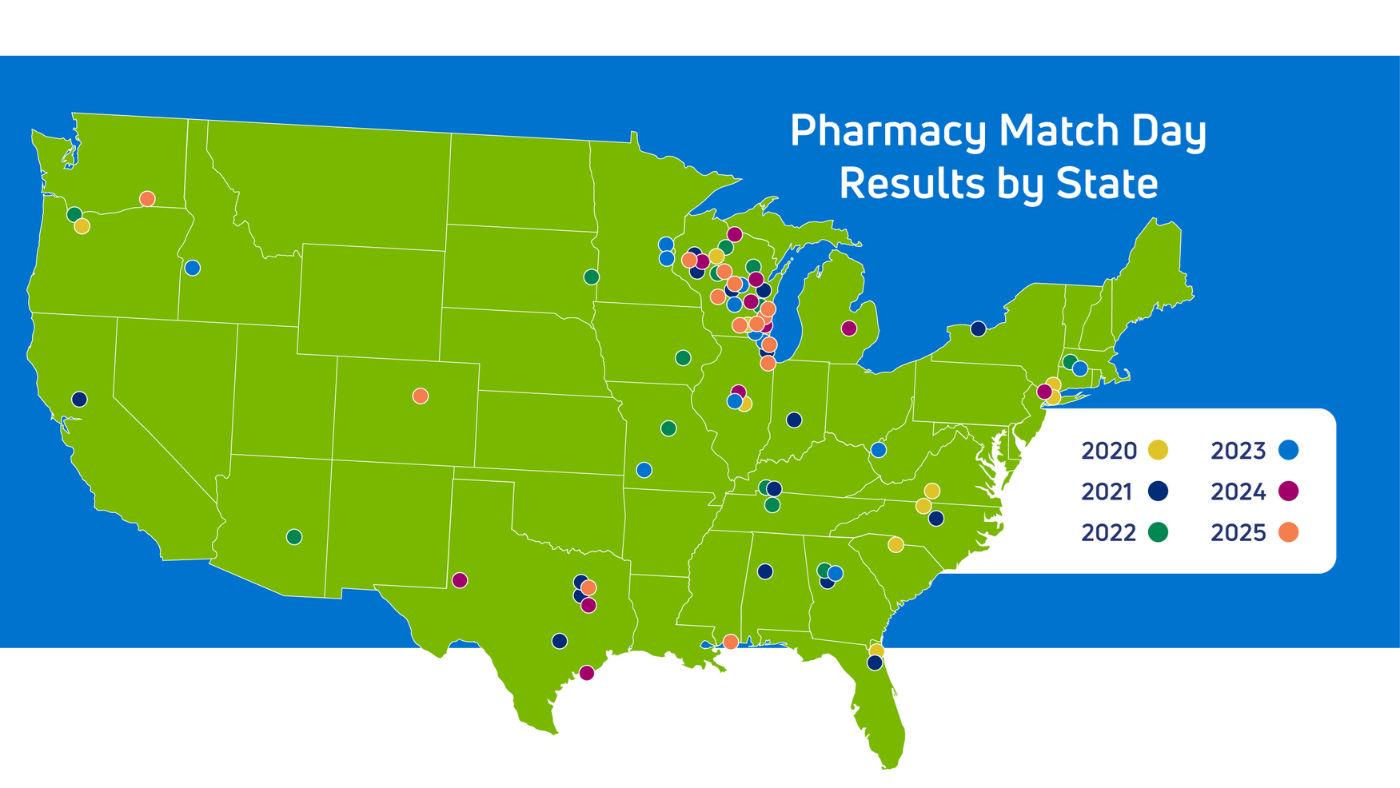Preparing for a Career in Pharmacy

Expected starting salary/salary range
The expected starting salary for individuals with a Doctor of Pharmacy degree can vary depending on factors such as location, industry, level of experience and specific job responsibilities. It is also important to note that salaries may also be influenced by factors such as additional certifications, skills, and negotiation abilities of the individual candidate.
Sign up to receive info about MCW's accelerated pharmacy program
Pharmacy Career Paths

Explore Current Pharmacy Career Openings
-
Froedtert Hospital
Use your Pharmacy degree in an award-winning health system, with 10 hospitals and more than 45 health centers and clinics. Improve the lives of our patients and team members.
View Open Positions -
Children's Wisconsin
Work for the region's only independent healthcare system dedicated to the health and well-being of children. In Milwaukee and throughout the state, we provide kids and their families a wide range of care and support.
View Open Positions -
Zablocki VA Medical Center
Become a Pharmacy Resident or Intern where you can make a difference in the lives of Veterans and their families while advancing your career.
View Open Positions -
Walgreens
Choose from multiple career paths in a wide range of locations, and hone your skills and advance in a company where our pharmacists are uniquely valued.
View Open Positions -
CVS
Our pharmacists go above and beyond guiding patients and making healthier happen for the millions of consumers we serve. Surround yourself with colleagues who are passionate about transforming and modernizing health care.
View Open Positions
Benefits of the MCW Doctor of Pharmacy Program
Prospective Student Information
Accelerated Program
- One of few institutions in the country where you can earn your PharmD in three years (instead of four)
- Early clinical experiences begin in the second quarter of your first year
- Years 1 & 2: Weekly clinical rotations (every Friday) — Apply classroom knowledge and develop hands-on skills consistently
- Year 3: Immersed in various practice sites full-time
Key Location
- Access to clinical rotations and research experiences at some of the top facilities in the country
- Shared campus and partnerships with Froedtert Hospital and Children's Wisconsin
- Partnership with the Clement J. Zablocki VA Medical Center, just a short drive from the MCW campus
Unique Learning Environment
- Customize your PharmD education through academic concentrations
- Gain a competitive edge in your career interest area
- Academic Concentration Options: Research, Population Health, Specialized Pharmacy Practice, Entrepreneurship & Leadership
- Small class sizes with approachable, supportive faculty who know students by name
Post-graduate Training

Residency Match Rate
Residencies are optional post-graduate training programs for pharmacists to continue developing skills and/or specialize in a particular career path. Approximately 66% of graduates from the MCW School of Pharmacy’s six cohorts have pursued residencies and fellowships.
The PharmD Class of 2025 achieved a 90% post-graduate year one (PGY1) residency match rate, exceeding the national match rate of 81%.
Three additional students secured postdoctoral positions in the pharmaceutical industry, for an overall post-graduate training match rate of 91%.
Fellowships
MCW School of Pharmacy alumni have been selected for prestigious fellowships in the pharmaceutical industry with companies such as:
- Bayer Corporation
- BD (Marketing fellowship)
- East Coast Institute for Research (Clinical Research and Pharmaceutical Industry fellowship)
- Eli Lilly (Clinical Development / Clinical Systems fellowship)
- Kenvue (Medical Information / Medical Affairs fellowship)
- Merck (Oncology)
- Regeneron (Development Operations and Portfolio Management)
- Sanofi (Drug Metabolism and Pharmacokinetics fellowship)
- TerSera Therapeutics (Medical Affairs / Scientific Communications fellowship)
MCW School of Pharmacy Alumni Spotlight
Our postgraduate training match rates have consistently surpassed the national average, with the Class of 2025 achieving a 90% postgraduate training match rate for PGY1 residency programs.
Learn about the stories and career paths of MCW School of Pharmacy alumni




